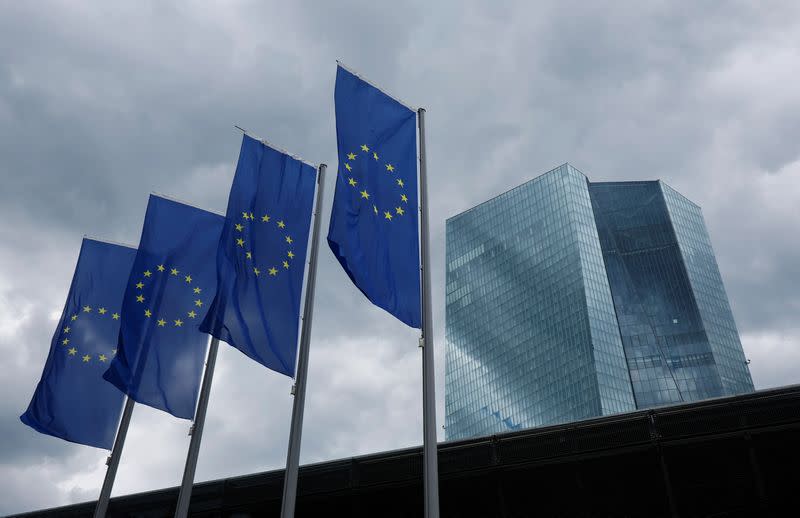Euro's reserve currency role tumbles at expense of dollar, yen, ECB says

FRANKFURT (Reuters) - The share of the euro in foreign exchange holdings tumbled last year at the expense of the dollar and the yen, and further drops are possible whenever Russia becomes free to reduce its own euro stockpile, a fresh report from the European Central Bank showed.
The share of the euro among foreign reserves has been declining since the start of the decade and the ECB has long argued that the European Union must take another leap in financial integration if it was to reverse this trend.
The euro's share among foreign reserves fell one full percentage point to 20% in 2023 and official reserve managers were net sellers of euro assets to the tune of around 100 billion euros, the ECB said in a report on Wednesday.
"By contrast, the shares of the US dollar, Japanese yen and other non-traditional reserve currencies increased," the ECB said. "In particular, there were purchases of yen-denominated reserve assets by official investors, presumably aimed at offsetting the yen’s depreciation over the review period."
The ECB also estimates that the Swiss National Bank's euro denominated reserves fell by 35 billion euro, primarily due to its intervention in support of the Swiss franc.
While euro area interest rates rose sharply, this did not improve the currency's attractiveness because rates are higher in many other places and because of the euro zone's muted economic prospects.
Citing a recent survey of 91 central banks in HSBC Reserve Management Trends, the ECB said both the bloc's financial architecture and outlook were causes for concern.
"Respondents to this survey cited weak growth prospects in the euro area, lack of supply of highly rated assets and centralised debt issuance as potential factors hindering investment in euro-denominated assets," the ECB said.
The future is also clouded by Russia's plans.
The Central Bank of Russia held around 8% of global reserves in euro before they were immobilised in 2022, the ECB estimates.
"This suggests that sanction-related measures might be relevant to the share of the euro in global foreign exchange reserves going forward," the bank said.
The ECB has repeatedly expressed concern about plans to use Russian assets stranded in Europe to help Ukraine, fearing that others may then start doubting the security of their euro holdings.
"Weaponising a currency inevitably reduces its attractiveness and encourages the emergence of alternatives," Bank of Italy Governor and former ECB board member Fabio Panetta said earlier this year.
(Reporting by Balazs Koranyi; Editing by Bernadette Baum)

 Yahoo Finance
Yahoo Finance 